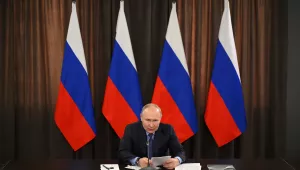Economic sanctions are a common policy tool for combating challenges in international security, often offered as a cheaper alternative to military force and a low-cost way of taking a strong public position. Many even argue that the threat alone can convince a target to comply without incurring the real costs of sanctions, making threats an efficient way to signal resolve. Sanction threats are therefore often used as the first policy choice against nuclear proliferation. But are these supposedly “cheap” threats an effective tool of statecraft, and are they actually inexpensive for the sanctioners that use them? This seminar evaluates sanction events from 1945-2012 and finds that threats of economic sanctions are particularly ineffective at combating security challenges like nuclear proliferation. Such failures can also have lasting counterproductive consequences. Sanctioners who fail to achieve their goals not only fail in the short term, but also damage their future credibility and undermine the effectiveness of their threats in subsequent disputes. As a result, “cheap” sanction threats may not be as inexpensive as previously assumed.




